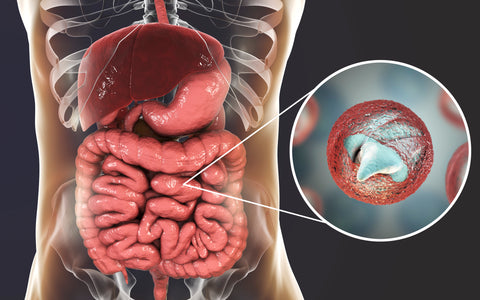
Cryptosporidium is a protozoan parasite capable of producing a nasty case of diarrhea, and which has the further unpleasant ability to survive chlorine, the chemical used for metropolitan water safety around the world. Though the organisms themselves do best inside a host, their spores can last for a long time in water, infecting other people long after they leave the intestines of the original victim. Water filters can remove these spores, fortunately.
Cryptosporidium is most likely in poorly managed public water sources, such as those found in developing countries. These are the areas where proper home filtration is most urgent. However, it would be a mistake to think that living in a more affluent nation makes you immune to this problem. The outbreak in the Milwaukee area in 1993 and subsequent problems with cryptosporidium demonstrates that wherever you are, you need to be concerned about the safety of your water supply.
Though less likely, sewage can still leak into public water supplies, and since chlorine is futile against cryptosporidium, at least at any concentration humans can drink, the mere fact that water has been treated is no safeguard against this diminutive parasite.
Mechanical filtering is sufficient to remove cryptosporidium spores from water. There is no need for special media, catalytic reactions, or any of the other techniques used to take other contaminants out of the water supply. Instead, an absolute pore size of 1 micron is enough to sieve the vast majority of spores out of the water and prevent infection.
Smaller pores also remove these parasitic contaminants, plus the cysts of a similar parasite, Giardia. Nominal pore sizes of 1 micron are usually too large to strain out the spores, however, and may allow 20% to 30% through, enough to cause an infection. 2 micron or larger pores are completely ineffective at blocking these protozoa. Nearly all modern countertop and under sink water filters have pores of 1 micron or less at some point in the filtration process, but you are still well advised to check to make certain this is the case.
A frequent cause of cryptosporidium infection is drinking unfiltered water from natural sources while camping or hiking. People often think that a remote wilderness stream is safe to drink because it is far from cities or factories. Unfortunately, though industrial pollutants are likely far fewer, microbes and parasites are likely to be present due to animal waste in the water. The only truly clean outdoor water is probably glacial run off a short distance below the glacier.
Outdoors enthusiasts are therefore well advised to bring along a portable/camping water filter. Water filter bags are excellent for campers and backpackers since they can be largely flattened out when empty. Rolled up, they occupy little room in your backpack or camping kit, but they can be quickly filled and hung from a tree, post, or other convenient object.
For even quicker processing of water on a small scale, squeeze bottle filters are a great choice, too. These are now advanced enough to provide a refreshing, rehydrating, and clean drink of water on the move. The ultimate portability is represented by filter straws, which are no larger than a good-sized fountain pen, yet offer safe water even in emergency conditions. In short, there is an urgent need to protect yourself from cryptosporidium, but this is readily accomplished by any water filter with an absolute pore size of 1 micron or less.

